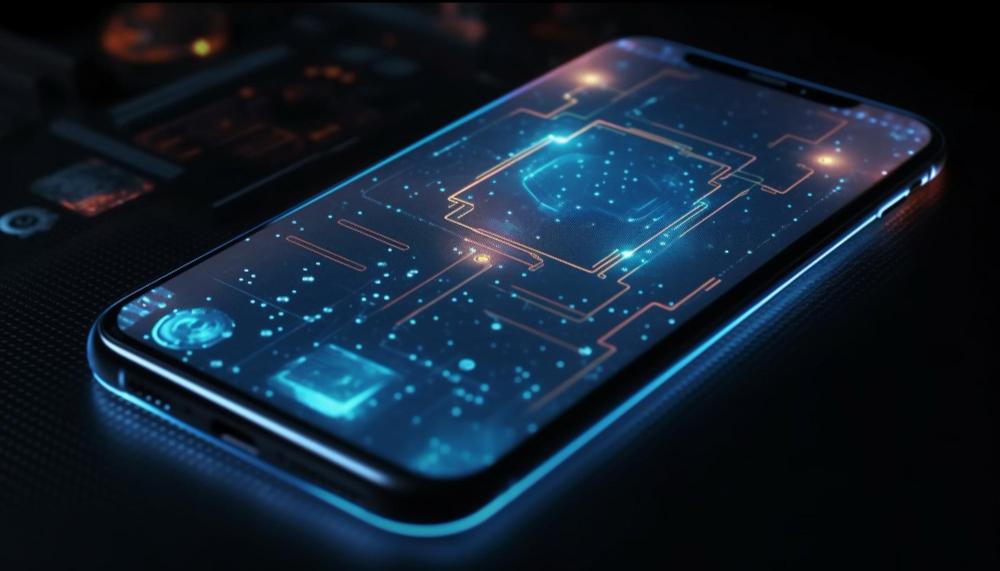In recent years, the advent of blockchain technology has revolutionized various industries, and its impact on mobile app development is particularly noteworthy. As users become increasingly concerned about their data privacy, blockchain app development is emerging as a solution that empowers individuals to take control of their personal information. This trend is transforming the landscape of mobile applications, offering a new paradigm where users can own, manage, and monetize their data without relying on centralized entities.
The Need for Change in Data Ownership
Historically, mobile apps have operated on a centralized model, where user data is stored on servers owned by companies. This model poses significant privacy risks, as users often have little understanding of how their data is used or shared. The lack of transparency and control has sparked a demand for solutions that prioritize user rights. With blockchain technology, mobile apps can shift to a decentralized model, allowing users to maintain ownership of their data.
Blockchain's distributed ledger system provides a transparent and secure way to store information. Every transaction or data change is recorded on multiple nodes, making it virtually impossible to alter or delete past records without consensus. This inherent transparency not only builds trust but also ensures that users can access their data whenever they choose.
How Blockchain Empowers Users
By integrating blockchain technology into mobile apps, developers can create platforms that prioritize user control over data. Users can manage permissions, deciding who can access their information and under what conditions. This level of autonomy can significantly enhance user trust and engagement. Moreover, users can choose to monetize their data, sharing it with advertisers or third-party services in exchange for rewards. This not only incentivizes users to participate but also aligns the interests of users and companies.
Imagine a health app that allows users to securely store their medical records on a blockchain. Users could share their data with healthcare providers as needed, while also controlling how their information is used. This shift not only protects user privacy but also enhances the overall quality of care, as providers can access complete and accurate information.
The Role of Smart Contracts
Another exciting aspect of blockchain in mobile app development is the use of smart contracts. These self-executing contracts with the terms of the agreement directly written into code can automate processes and enhance security. For example, a mobile app can use smart contracts to facilitate secure transactions or to enforce data-sharing agreements between users and companies.
Smart contracts eliminate the need for intermediaries, reducing costs and improving efficiency. In the context of data ownership, they ensure that user agreements are honored without the risk of manipulation. This can significantly lower the mobile app cost calculator estimates, as fewer resources are needed for compliance and management of user agreements.
Challenges and Considerations
While the potential benefits of blockchain for user data ownership are clear, several challenges remain. Scalability is one of the biggest concerns. Many blockchain networks struggle to handle large volumes of transactions, which can lead to delays and increased costs. Additionally, the complexity of blockchain technology can deter traditional mobile app developers from embracing it.
Another challenge lies in regulatory frameworks. As governments worldwide grapple with data privacy laws, mobile apps must navigate a complex landscape to ensure compliance. Developers need to stay informed about these regulations while also considering the decentralized nature of blockchain, which complicates jurisdictional matters.
Future of User Data Ownership in Mobile Apps
Despite these challenges, the future of user data ownership in mobile apps looks promising. As blockchain technology continues to evolve, solutions to scalability and regulatory hurdles are likely to emerge. Increasingly, developers are recognizing the importance of user-centric design, and blockchain offers a pathway to create applications that prioritize user rights.
In India, the mobile app development landscape is rapidly adapting to these trends. With a strong focus on innovation and a skilled workforce in Android app development, India is positioned to lead the charge in creating blockchain-enabled applications that prioritize user data ownership. As more businesses realize the potential of blockchain, we can expect a surge in demand for expertise in this field.
If you're interested in exploring the benefits of blockchain app development services for your business, we encourage you to book an appointment with our team of experts.
Conclusion
The integration of blockchain technology into mobile apps represents a significant shift in user data ownership. By enabling users to control their information and engage in transparent transactions, blockchain fosters trust and empowers individuals. As the landscape of mobile app development continues to evolve, the importance of blockchain application development cannot be overstated. The future is bright for applications that prioritize user control, and those willing to invest in this technology will undoubtedly reap the rewards.



